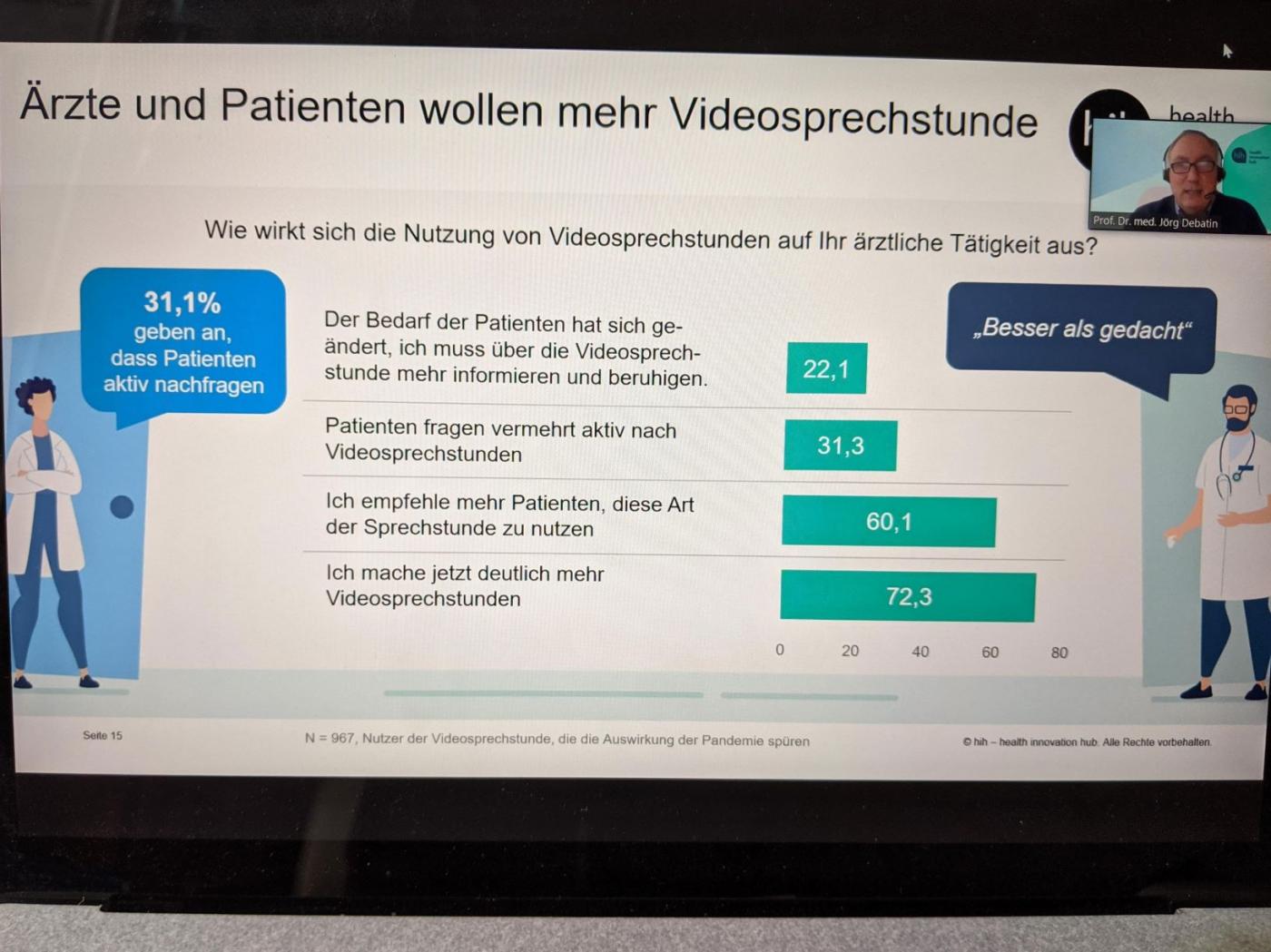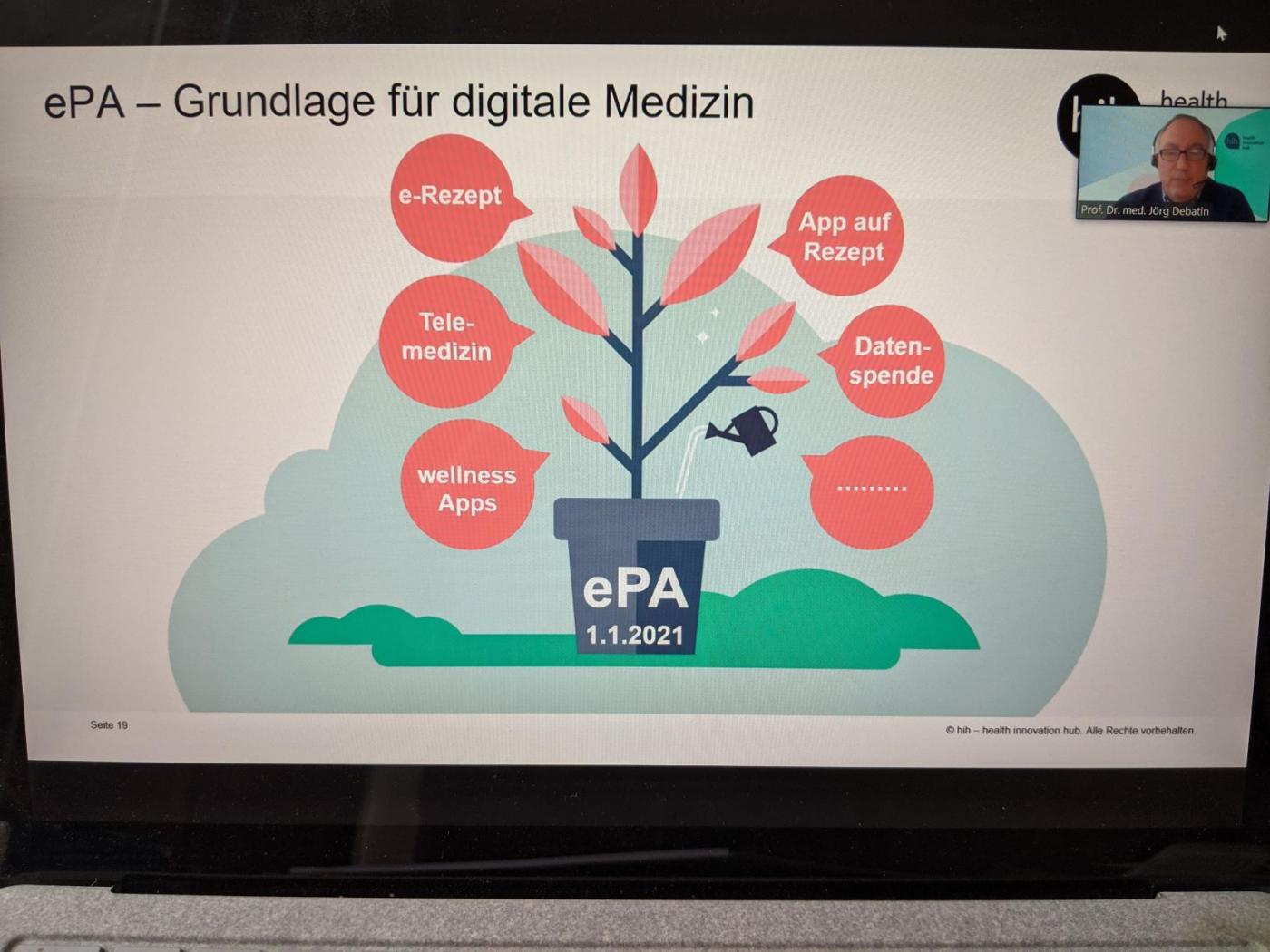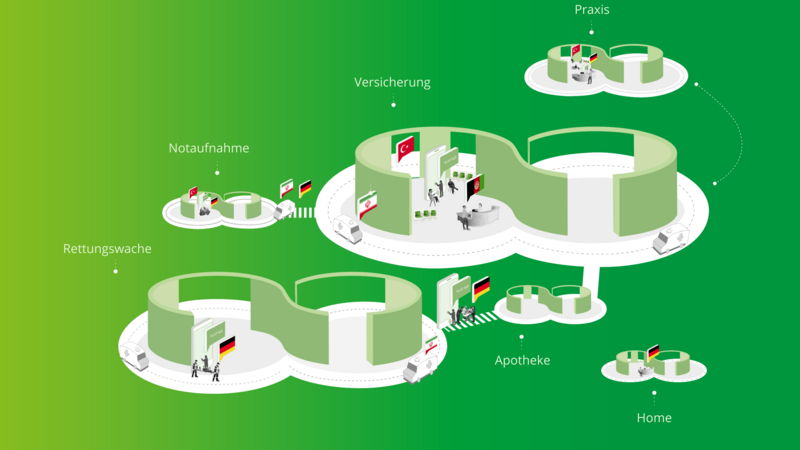During his keynote, Professor Dr. med. Jörg Debatin, Chairman of the Health Innovation Hub (hih), outlined data exchange solutions that have received a boost during the pandemic and how diagnostic decisions will be taken in future. Commenting on the role of digital data in medical research, Debatin said: "They are crucial as data are the basis of medical progress."
The coronavirus pandemic has given digitalisation a great boost and broad sections of the population have had their first encounters with digital solutions. Speaking at the start of the eHealth Day Hamburg on Tuesday (December 2, 2020), Jan Quast, Managing Director of Gesundheitswirtschaft Hamburg GmbH, said: "We have seen that digitalisation of the healthcare sector is not only an opportunity, but a necessity." The second part of this year's digital event was held under the motto "Digitization as an Opportunity" and saw delegates take part in workshops focusing on Big Data, data protection and new solutions for cross-sector data exchange. (The first part was held in August 2020.)
Corona as driver of research
More and more people volunteering data
However, sufficient amounts of quality data must be available to achieve reliable results and luckily more and more people are volunteering their data. "Around 532,000 people have already volunteered their data to a corona app by the Robert Koch Institute," said Debatin, who was formerly Director of the University Hospital Hamburg-Eppendorf. In his new function as chair of hih, a project by the German Ministry of Health, Debatin oversees this interdisciplinary think tank with emphasis on a digitalised healthcare sector. The interdisciplinary structure of hih brings doctors, nurses, data scientists and entrepreneurs together. The latter, for instance, focus on how best to launch an app on the market.
Video consultations
Access to online chats with midwives became easier in late 2019 after the Digital Supply Act (DVG) authorized health apps. Debatin noted: "This openness to innovative healthcare solutions increases the attractiveness of the German healthcare market." DVG has simplified access to video chats with consultants. This interesting tool enhances the ordinary (in person) consultation. "It offers an opportunity to see the doctor more or less in your living room and entirely without the risk of infection," he added. The low-threshold offer has been well received so far and is likely to be expanded. Then, physiotherapists and speech therapists could hold video chats with their patients as well.

Data sovereignty over electronic patient files
From 2021, all those with statutory health insurance will be able to obtain an electronic patient file (ePa) from their insurer. The sovereignty over content and access rights will remain with the insured, Debatin stressed. Doctors will be able to overview all the data securely and comprehensively. This should go a long way towards prevention, as well as networked and individualized medicine that benefits patients.
ys/kk/pb

Sources and further information
More
Similar articles

Apps removing language barriers and saving lives

From spin-off to company - transferring from research to praxis

Peter Vullinghs, Head of Philips, says: "Big data can save lives"
